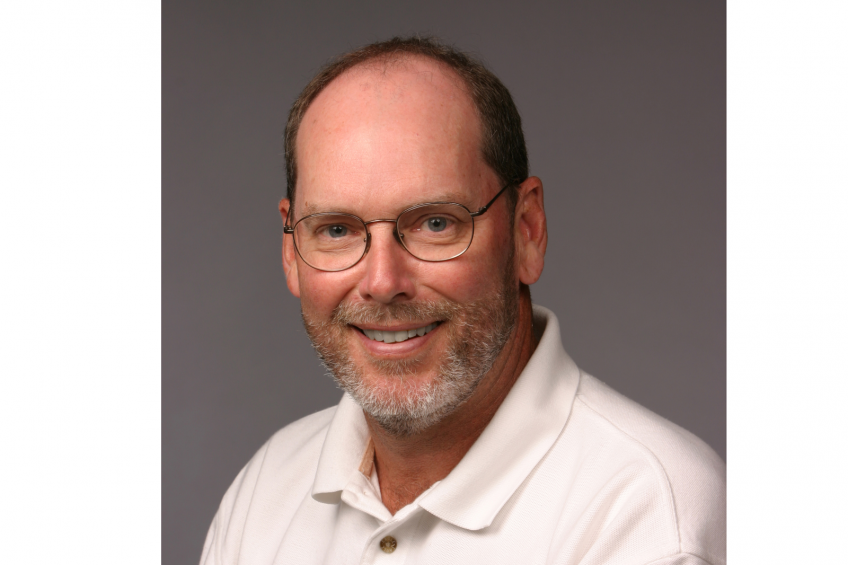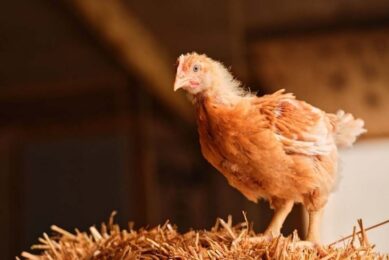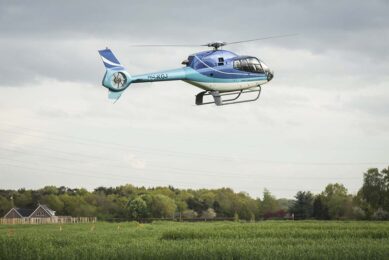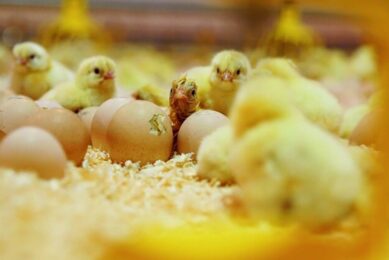“Looking for the sweet spot, maximising potential”

There is no crystal ball on the desk of Cobb-Vantress’ president Jerry Moye, but if there is one person who has insight in to?the poultry business and knows what is in the pipeline for ?years ahead, he is the one to turn to. That is just what ?World Poultry did.
By Fabian Brockötter
A storm front is approaching Siloam Springs, Arkansas, USA. Building up over the southern pains and due to collide with the Ozark Mountains, tornado and hail warnings are in place. Adverse weather has plagued the region for some weeks now, gravely affecting humans, animals and crops. It’s on everyone’s mind, but besides people checking the TV-weather channel, it’s business as usual at the headquarters of Cobb-Vantress just outside the town. President Jerry Moye is hopping from one meeting to the other, not strange if one oversees the reach of his company. With more than 60 distributors worldwide and the mission of providing affordable and healthy protein to the world, there is a lot to be discussed. Local weather is just a minor issue. It’s essential for Moye – and Cobb in particular – to stay in the loop when it comes to company opportunities and especially client and consumer demands. Jerry Moye: “Everyone is looking at us to give them the birds with the genetic potential to meet all their respective needs, from production requirements to expectations of behaviour and welfare. Furthermore we have made it our company goal to look for the sweet spot of maximising the genetic potential of our birds in all the different environments in which our clients raise them.”
What does Cobb do in the field of genetics, to be ready for the future?
“The last four years we have focused on investments made at the top of the pedigree pipeline. For example, last year we officially opened our fifth US research complex in Tennessee, expanding the pedigree breeding footprint. Overseas we are also moving forward, expanding the Herveld farm in the Netherlands, which came to Cobb from Hendrix Genetics as part of our Hybro cooperation. We have moved the Hybro lines to the new US farm in Tennessee and will replenish the Herveld farm with Cobb lines. I am very excited that we made a full transition of the genetics, all the birds are now located were they should be. This safeguards our operation in case of disease outbreaks and limits shipment of live birds and its negative effect on animal welfare.”
You are on the level in the production pyramid in which you can see what will hit commercial level in 3-5 years time. Take us there.
“If anything, our strategy of improving feed conversion ratios is universally important. In the last three years we focused much more aggressively on improving the FCR and came close to our goal of achieving a 50% improvement over our previous annual rate of progress target. Efficiency is key in the five years that are ahead of us. I believe that the high level of feed prices is here to stay. On top of that we are in the process of interchanging breeding lines. Every broiler today consists of a four way cross and progress is being made in improving all four existing lines. Now, some of our customers want to make larger steps and are willing to relinquish one characteristic to greatly improve another. Sometimes, this is best achieved by changing a line. The investments we have made in adding Avian Farms genetics (2000), and Hybro genetics give us great opportunities in this area.”
What is the background of this changing customers demand?
“There are two forces at work. On the one hand the cost of feed has risen dramatically, on the other hand the US market has reached a maturity level. In the years 1995-2010 the value of breast meat was key in production, but in the last 18 months that has changed to a great extent. More and more companies are focusing on selling the whole chicken instead of building their strategy on the value of breast meat. That helps them weather some storms. The US market has reached a maturity level, for years we grew by head, now in 2013 we are down 3% in pullet placements year over year. Broiler chick placements have followed a similar trend but the industry continues to raise broiler weights so in total bodyweight processed, we are only 1% down.”
Can the broiler – Cobb’s in particular – cope with the changing demands?
“As a breeding company we are in the business of delivering genetic potential. That is our main focus. Our Cobb500 needs to be fit for purpose, but
customer demands vary greatly from market to market. End weights differ per region from 1.4 to 4 kg. Together with our customers we are in the
constant process of looking for the sweet spot in their production system. As said, there are a lot of variances and we don’t know if we have the exact answer for all. That is why we are investing heavily in technical advice. We are very proud of the partnership we have with our customers. I used to be a customer myself, so I know
exactly how important our assistance can be. We have a saying in our
company; the sales group makes the first sale, the technical teams make every other. Information analysis is also critical. That is why we are in the process of building a broiler database, a really powerful tool that is already in place in breeders. With data you can compare, set targets and go for results, use all the potential that is there!”
Improving performance is your craft, but what lies in the shadows?
“Coming more and more out of the shadows is the need for reduction of antibiotics. I have been saying to our team that we (the US) probably will not follow the European Union on welfare quickly, but all the world markets will follow it on antibiotic reduction. Consumers worldwide will dig into food safety, as an industry we have to be ready for that. In my opinion the ESBL issue will be followed by a second wave of issues. That said, we are still scratching our head on ESBL’s. We don’t know enough about it. We didn’t use antibiotics on a pedigree level for 12 years and still the problem is around. We want answers to why some farms are free of ESBL’s and others aren’t. There is still a lot to learn.”
Does the issue of welfare worry you?
“Especially in the European Union, welfare is top of mind. We at Cobb invested in slow growing lines to accommodate welfare wishes, but my concern is if this is a sustainable business in a world hit by crises. What worries me the most is the guidelines set by the European Food Safety Authority. I have no problem with authorities saying to me that a product has to meet certain guidelines, but please don’t tell me how to get there. I hope all of us can agree to measure outcomes. Leaders in the world should realise that they have a great responsibility to feed the world’s population. I often see politicians who are short sighted about the impact these rules may have in other parts of the world, introducing rules and legislation that may fit in their country’s economic system. You cannot make policy in places where people have plenty to eat and ignore the effect on the rest of the world.”
Source: World Poultry volumne 29 nr 6
Biography Jerry Moye
Jerry Moye, president of Cobb-Vantress has worked in the poultry industry for over 30 years. Before joining Cobb-Vantress, he spent 16 years in the industry as a live production manager for two large US integrators, initially with Showell Farms and then with Zacky Farms of California. At Cobb, he progressed from director of technical service to general manager, vice president, and became President in 2007. His management responsibilities included breeders, hatcheries, broilers, and feed mills. He has a degree in economics from Washington College in Maryland.
Cobb-Vantress, Inc.
When Robert Cobb senior bought the Old Pickard Farm in Littleton, Massachusetts in 1916 he could only have dreamed about the flight his initiative would take. Close to a hundred years later Cobb has become the world leader, being the oldest poultry breeding company in the world. Currently homed just south of the Corn Belt in Siloam Springs, Arkansas, it reaches out to all continents through partnerships, distributors and branches. Cobb is owned by Tyson Foods, one of the world’s largest poultry processors.
Join 31,000+ subscribers
Subscribe to our newsletter to stay updated about all the need-to-know content in the poultry sector, three times a week. Beheer
Beheer








 WP Admin
WP Admin  Bewerk bericht
Bewerk bericht